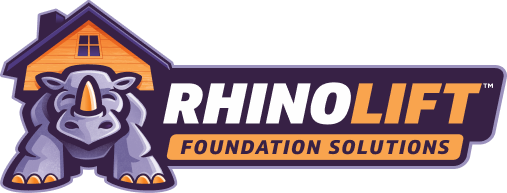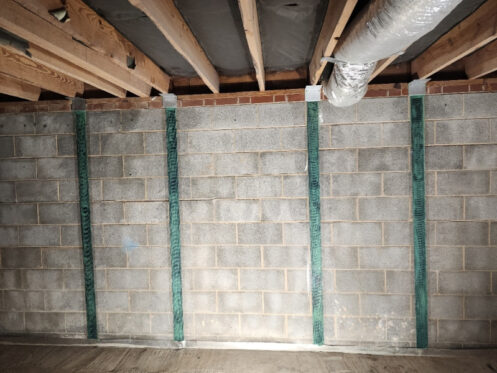Charlotte’s rainy seasons can bring a lot of beauty to the area, from lush greenery to vibrant flowers, but they can also pose significant challenges for homeowners—especially when it comes to keeping basements dry. Heavy rains in the Charlotte area increase the risk of water damage in homes, and without the right preventive measures, homeowners may find themselves dealing with costly repairs.
One of the best ways to protect your basement, and the rest of your home, is by investing in effective basement waterproofing. Here’s how to prevent water damage during Charlotte’s rainy seasons and keep your basement safe, dry, and worry-free.
Why Water Damage in Basements Is a Big Concern in Charlotte
Charlotte’s climate can vary greatly, with seasonal rains sometimes causing flash floods and prolonged wet spells. Basements, being below ground level, are particularly vulnerable to water intrusion as water naturally flows down and collects near foundations. When rainwater saturates the soil around a home, hydrostatic pressure builds up and can force water through even the most minor cracks in foundation walls. If left unchecked, this water damage can lead to structural issues, mold growth, and can even impact indoor air quality.
Understanding these risks is the first step, but knowing how to prevent them with proactive basement waterproofing solutions is key to long-term protection.
Essential Basement Waterproofing Tips for Charlotte Homeowners
1. Inspect Your Basement Regularly for Signs of Water Damage
Start by inspecting your basement frequently, especially before and after rainy seasons. Look for common signs of water intrusion, such as:
- Damp walls or floors: Any visible moisture on walls or the floor indicates that water may be seeping through.
- Mold growth: Mold and mildew thrive in damp, humid conditions. Not only are they unsightly, but they also pose health risks.
- Musty odors: Persistent odors may indicate mold or dampness, which means water is likely present somewhere.
- Cracks in walls or floors: Even tiny cracks can allow water to seep in, leading to significant issues over time.
Detecting these issues early can allow you to take action before they escalate, making your waterproofing efforts much more effective.
2. Ensure Proper Grading Around Your Home
Poor grading around your foundation can cause water to pool close to your home instead of draining away. A gentle slope, ideally six inches for the first ten feet from the foundation, helps direct rainwater away. Adding soil around the perimeter to improve this grade can be a quick DIY project, or you can hire a professional to ensure the best results. By directing water away from the foundation, you can significantly reduce the risk of water damage to your basement.
3. Invest in Quality Gutter and Downspout Systems
Gutters and downspouts are essential for directing rainwater away from your home, which reduces the chances of basement water damage. Ensure that:
- Gutters are clean and free from debris: Clogged gutters cause overflow and allow water to spill directly down your walls and into your foundation.
- Downspouts extend at least six feet from the house: This distance helps keep rainwater away from the foundation. Extensions can be added if needed to achieve this.
Proper gutter and downspout maintenance is crucial, especially in Charlotte’s rainy seasons, as the frequent downpours can quickly overwhelm systems that aren’t functioning properly.
4. Seal Cracks in Your Foundation and Basement Walls
One of the most effective basement waterproofing steps you can take is to seal any visible cracks or gaps in your foundation walls. Even small cracks can expand over time due to water pressure. Use waterproof epoxy or a specialized sealant for minor cracks, or consider hiring a professional to address larger ones. Professional sealing ensures that even the smallest vulnerabilities in your basement walls are protected, preventing water from seeping through.
5. Install a Sump Pump
For homes in low-lying or flood-prone areas, a sump pump can be an invaluable investment. A sump pump collects excess water that accumulates in a basin (or sump) in your basement and pumps it outside, preventing it from pooling around your foundation. Sump pumps are particularly useful during heavy rains when the water table rises. Modern sump pumps even come with battery backup options, which can be essential during power outages often caused by storms.
6. Consider Interior and Exterior Drainage Solutions
Interior and exterior drainage systems are more extensive but can provide exceptional basement waterproofing. Interior systems, such as French drains, help channel water that seeps into your basement directly into your sump pump. Exterior drainage, on the other hand, redirects water away from your home’s foundation entirely, tackling the issue from the outside. Installing these systems often requires professional help, but they are highly effective in preventing basement water damage.
7. Add a Vapor Barrier or Waterproof Membrane
Installing a vapor barrier on interior basement walls can prevent moisture from seeping through the walls. These barriers are made from waterproof materials like polyethylene sheets, which block the movement of water vapor into the basement. For added protection, a waterproof membrane can also be applied on the exterior foundation walls to stop groundwater from penetrating through.
8. Dehumidify Your Basement to Keep Humidity in Check
Even with the best waterproofing measures, Charlotte’s climate can create high indoor humidity levels, especially during rainy seasons. Using a dehumidifier helps keep humidity below 50%, reducing the likelihood of mold growth and musty smells. A dehumidifier is an excellent supplement to other waterproofing efforts, helping you maintain a dry and comfortable basement environment.
Why Basement Waterproofing Is an Investment in Peace of Mind
Protecting your basement from water damage in Charlotte requires proactive and consistent effort, especially during rainy seasons. However, the investment in basement waterproofing offers more than just structural protection; it’s an investment in peace of mind. Preventing water damage can also help preserve your property value, reduce health risks associated with mold, and avoid the financial burden of major repairs.
Waterproofing can also improve energy efficiency. A damp basement often increases indoor humidity, which makes cooling your home in summer and heating it in winter more challenging. Keeping your basement dry means your HVAC system won’t have to work as hard to maintain a comfortable temperature, potentially lowering your energy bills.
Choosing the Right Professionals for Basement Waterproofing in Charlotte
While some waterproofing tasks can be done yourself, others require the expertise and equipment of a professional waterproofing contractor. If you’re noticing significant water intrusion issues or if your basement has a history of flooding, it’s best to consult with a foundation waterproofing specialist. Professionals can conduct a thorough assessment of your basement, identify potential problem areas, and recommend tailored solutions to keep your home safe and dry.
Final Thoughts
Charlotte’s rainy seasons are inevitable, but water damage in your basement doesn’t have to be. With the right preventive measures—such as grading, sealing cracks, maintaining gutters, and installing drainage solutions—you can keep your basement dry and protected year-round. Investing in basement waterproofing not only safeguards your home but also offers peace of mind, knowing that you’re prepared for whatever weather comes your way.
For professional basement waterproofing in Charlotte, reach out to RhinoLift Foundation Solutions. With years of experience in the area, RhinoLift understands the specific waterproofing challenges Charlotte homeowners face, especially during the rainy seasons. Our team specializes in comprehensive foundation and waterproofing services designed to keep your home safe and dry, using high-quality materials and proven methods. Ask us about our crawlspace services, too!
Whether you’re dealing with minor water seepage or need a full waterproofing installed, RhinoLift offers customized solutions to meet your unique needs and ensure long-term protection against water damage.





